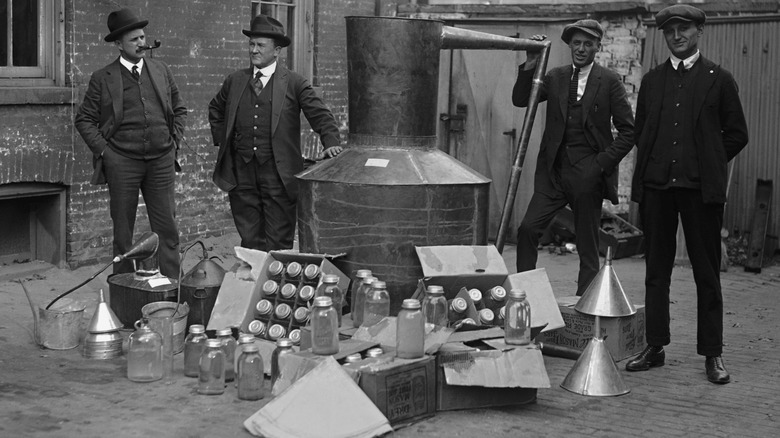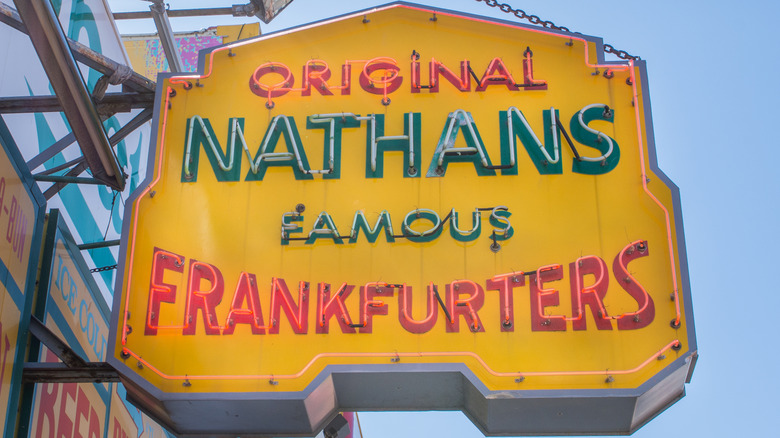The Ridiculous Amount Of Beer Nathan's Famous Gave Away To Celebrate The End Of Prohibition
Seeing cocktails and spirits flowing freely in a local bar, it can be hard to imagine a time in the United States when selling liquor was a felony. Yet, during Prohibition, the making and selling of alcohol came with a punishment of up to five years in jail and up to a $10,000 fine for a repeat offense, according to 1920s: Social Aspects.
While drinking alcohol wasn't technically illegal, many alcohol-adjacent activities became verboten. According to Alcohol Problems And Solutions, a newspaper at the time broke down the legal vs. illegal activities for its readers as such: Illegal activities included storing liquor anywhere else but your own home, hanging liquor signs or advertisements, buying or selling recipes for homemade alcohol (hence the advent of moonshine), giving or getting liquor as a gift, or taking your private stash and drinking it in public spaces like a hotel or restaurant. Legal activities that were allowed included drinking at home or in a friend or family member's home, taking your stash of alcohol with you when you moved houses (yet the resident would need a permit to do so), and producing and selling alcohol used for religious purposes — what the law called "sacramental liquor."
Another exemption allowed for people with a prescription to buy alcohol from pharmacies for medicinal purposes. That particular loophole allowed Walgreens to expand from 20 original stores to a whopping 500 locations during Prohibition in the 1920s, according to History.com.
Here's how Nathan's Famous celebrated the end of Prohibition
So it's no wonder Americans were ready for a drink after Prohibition ended in 1933, according to the National Constitution Center. And boy did Nathan Handwerker deliver. The founder of Nathan's Famous hot dog stand, originated in Coney Island, knew thousands of New Yorkers wanted to celebrate after years of toasting with nothing but milkshakes. According to Handwerker's grandson, Lloyd, Nathan was one of the first people to get a permit to sell alcohol after Prohibition ended (via Thirteen). And almost immediately he gave out a record number of free mugs full of booze to celebrate — 80,000 glasses to be exact, according to Brooklyn Daily Eagle
"[Nathan] made a deal with Kings Brewery, the major local supplier, just cranking up legal production on Pulaski Street in Brooklyn," Lloyd Handwerker told Thirteen. "[The restaurant] took over Anna Singer's custard stand...and gave out free mugs of beer."
And undoubtedly, a lot of hot dogs to go with it, too.

